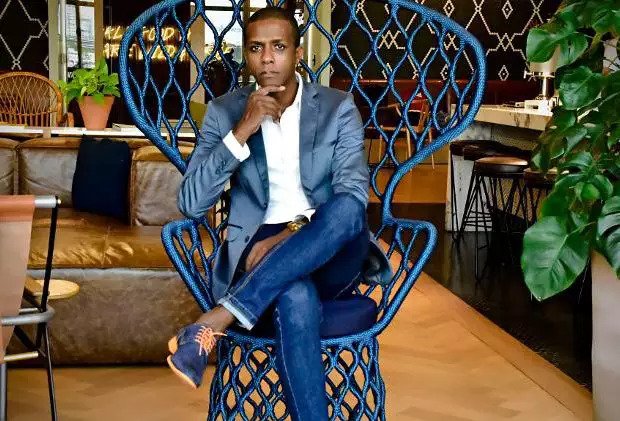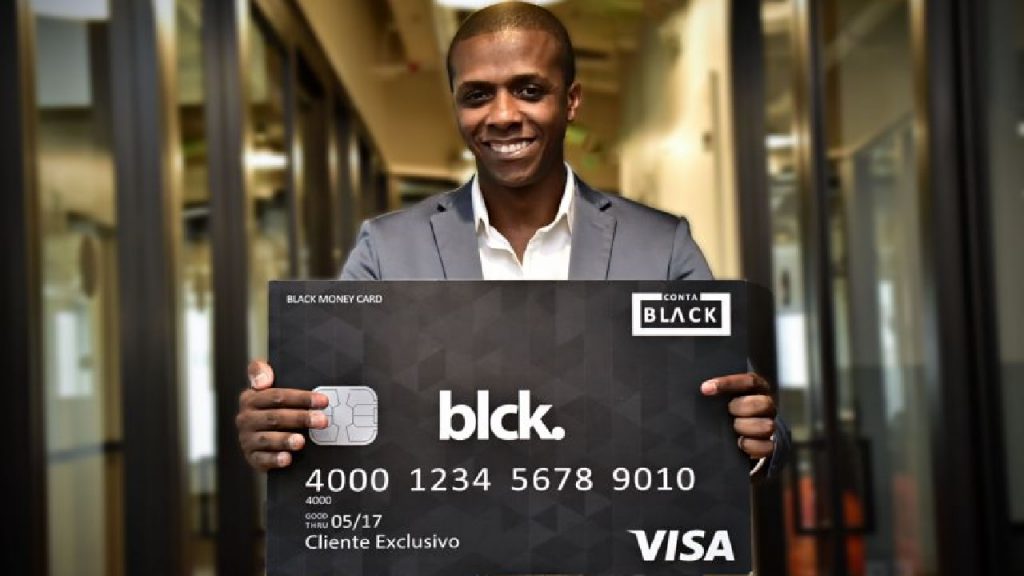RIO DE JANEIRO, BRAZIL – When his communication agency was at its peak, entrepreneur Sergio All, 45, realized that technology was constantly evolving and therefore he needed to invest more in his business to keep up with it. He then decided to ask for a personal loan from the bank of which he had been a client for ten years and, to his surprise, had no answer.

“At the time I wanted to understand why I was not allowed this access,” says the entrepreneur. “I had a branch that moved a lot of money, I met all the requirements [SERASA score]. I was no different from the others.”
Sergio All’s case is not isolated. Although they handle R$1.7 trillion (US$425 billion) a year, 32 percent of black and mixed-race entrepreneurs had one or more requests for credit denied by their banks, without clarifying the reasons.
These are the findings of the Study of Black Entrepreneurship in Brazil, an unprecedented survey conducted by PretaHub in partnership with Plan CDE and JP Morgan.
The survey interviewed 1,220 black and white people throughout the country, from all social classes, to map out the profiles and main difficulties faced by afro-entrepreneurship.
An advertiser and financial expert, All took the incident as an encouragement to create his own bank, aimed specifically at the black and low-income population.
“A little after [having the credit denied] I came to understand that it was a social, racial and selective issue, which made me go further,” he says. “I asked myself: How many guys like me go through that?”
Born in the periphery of São Paulo, the entrepreneur knew the financial difficulties of the public he wanted to impact. In 2017, he founded Conta Black (Black Account), the first digital account developed by black people among the more than 500 fintechs – startups focused on financial services – in Brazil.
The novelty, which for now operates in five Brazilian states, already has 3,000 accounts registered and aims to reach 50,000 this year. To do so, it has promoted cutting red tape to access financial services through lower fees and transparent service.
Wanting to distance itself from the term “bank” and get closer to what the team calls personality, Black wants to expand a new wave, the so-called “financial communities”, in which it is a pioneer.
The proposal of these communities is to focus on the base of the pyramid, in other words, those with no access to credit. According to the Instituto Locomotiva, 45 million Brazilians are excluded from the credit banking system. The thirst for social impact is also allied to the segment’s profitable potential. Even if excluded, those excluded from credit move R$817 billion a year in Brazil.

Despite the benefits offered to black entrepreneurs, such as educational tools and financial business management, few agree with the interpretation that gave life to the fintech.
This is because, still according to the study, only three percent of black entrepreneurs believe that the difficulty of access to credit is linked to the racial issue.
For social entrepreneur Adriana Barbosa, winner of the Grand Trophy 2019 and founder of PretaHub and Feira Preta, the mapping conducted by the research is necessary for black entrepreneurship to be attributed a narrative of power in place of scarcity.
An example of this scarcity would be the difficulty of access to credit, which she considers a consequence of institutionalized racism in Brazil.
“Blacks have been at a disadvantage for many years and in a systematic way, and this exclusion makes us not fit the banks’ criteria for access to credit,” says the member of the Socioenvironmental Entrepreneurs Chart network.
Audiovisual producer and entrepreneur Rodrigo Portela, 31, had been an account holder with the same bank for more than five years and also had his request for personal credit denied the first time he needed it.
The event, similar to Sergio All’s, led him to adopt a different attitude towards finances. He is the founder of Terra Preta Productions – an audiovisual producer aimed at black audiences since 2017 – and, after being left in the bank’s hands, he worked to make his business completely sustainable, without biting off more than he could chew.
Portela also argues that the credit requests denied to black entrepreneurs without explanation are linked to the racial issue. He says he decided to borrow from the bank at the beginning of Terra Preta because of the “easy credit” advertisement made by the owner of the production company where he worked before.
“He took credit from the bank every month so he could pay us back, he said it was ‘good’. “And the first time I tried, I couldn’t”, says the entrepreneur. “But of course: he was white, I wasn’t.”

In her statement for the 2019 Social Entrepreneur Award, the entrepreneur Sheila Makeda also pointed out the difference in the handling by bank employees of black account holders.
“You go to the bank and you get looked at in a different way as if you have no means to hold an account there,” says the owner of Makeda Cosmetics.
Some banks have had cases of violence with black clients reflected in the media. One of the most frequent protests took place in February 2019, at a branch of the Caixa Econômica Federal in Salvador.
The microentrepreneur and client of Caixa Crispim Terral was accompanied by his 15-year-old daughter when he was detained by state police in Bahia and forcibly removed from the scene.
Asked about the color of the skin being a possible obstacle to granting credit at some bank branches, the FEBRABAN (Brazilian Federation of Banks) states that each bank has its own policy for granting credit, two of the criteria being the time of relationship with the client and the payments history.
“It is worth noting that the Self-regulation Banking System (SARB) determines that banks act ethically and handle consumers fairly, respectfully and transparently,” adds the federation.

